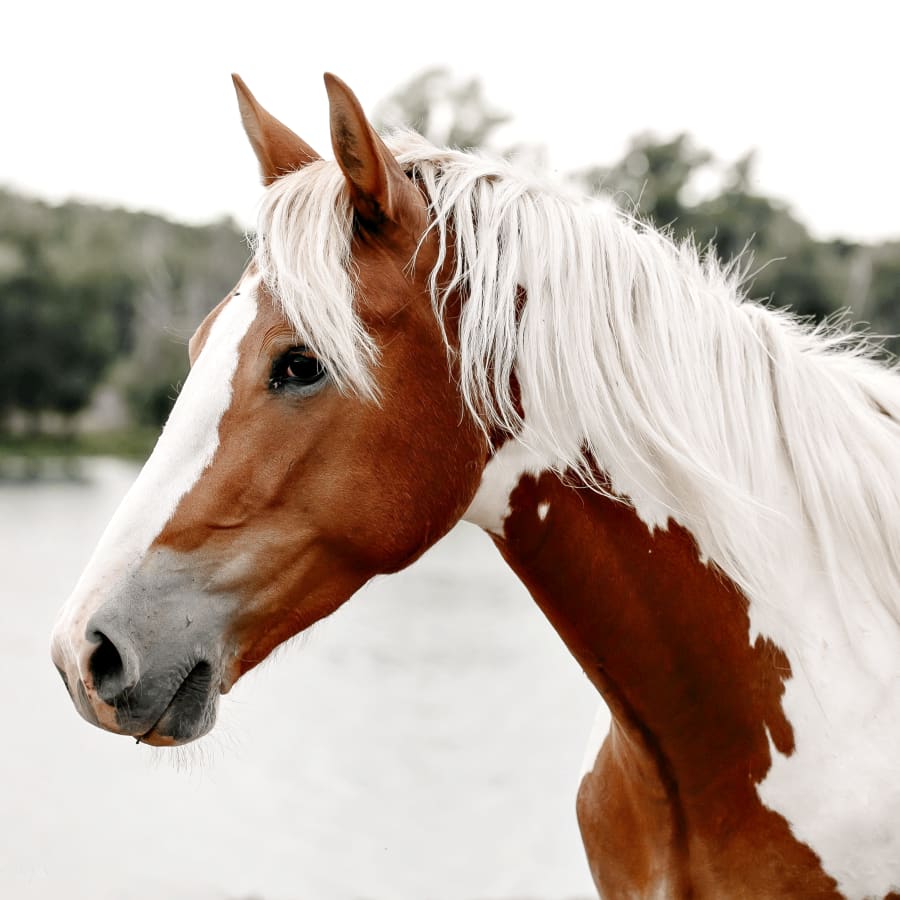The Importance of Routine Horse Exams
Wellness exams are twice-yearly checkups that form the cornerstone of your horse's annual preventive health care plan, helping your horse maintain optimal long-term health.
When routine exams are combined with regularly scheduled vaccinations, parasite prevention, and proper nutrition, they can help your vet to keep your horse in good health and identify any developing issues early - when most easily treated.
Weight issues and nutritional concerns, as well as general health care questions, can be addressed during the face-to-face consultation with the veterinarian.

What To Expect At Your Horse's Routine Checkup
When your equine friend is scheduled for a routine exam knowing what to expect can help the process go much smoother for you, your horse, and your vet.
At each routine assessment, our San Angelo vets will check each of the following:
Basic Assessment
Carried out at a distance, this test is used to determine whether your horse is quiet, shy and nervous, or bright and responsive. This reveals your horse's basic personality and behavioral traits that can be a useful comparison for future exams.
Body Condition Score
Often referred to as a BCS, this assessment focuses on the overall condition of your horse on a scale of 1-9. To calculate this, your equine vet will look at your horse’s weight, size, muscle tone, and the prominence of their hips and ribs.
Weight Tape
This is what is used to calculate the approximate weight of your horse when visiting our facility to have your horse weighed is not practical or possible. The tape is passed around the girth of your horse and the result is recorded.
Temperature
Any raised temperature could indicate that your horse is fighting an underlying infection.
Heart/Lungs
Your vet will check your horse's heart rate, sounds, and rhythm to ensure that there are no detectable abnormalities. Your vet will also check how your animal’s lungs sound and that their breathing isn’t too fast or slow.
Coat Condition
The condition of your horse’s coat can tell your equine vet a lot about the overall health of your animal. A dull, dry coat and skin problems can be indicative of poor nutrition or other health concerns.
Teeth
Horse’s teeth grow for the duration of their lifetime and must be ground down regularly to prevent overgrowth. If this isn’t happening, you may need to arrange for a procedure known as ‘floating’ where a professional manually files their teeth.
Legs/Feet/Gait
Leg and foot health is particularly important for horses. Your vet will check carefully for any abnormalities, then any concerns about your animal’s gait will be evaluated.
In-House Coggins Testing
Our state-of-the-art equine facility at Western Veterinary Hospital now has the capability to provide on site EIA Testing. Whether you need Coggins test results next week or in an hour, our team can get the job done!
New Patients Welcome
Western Veterinary Hospital is accepting new patients! Our experienced vets are passionate about the health of San Angelo companion animals. Get in touch today to book your pet's first appointment.

